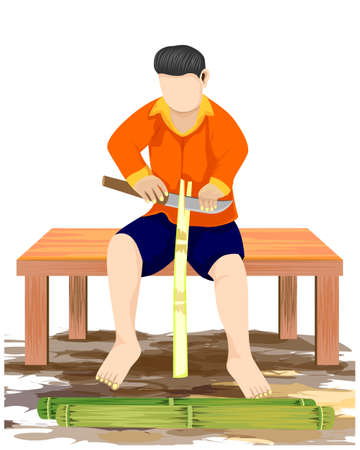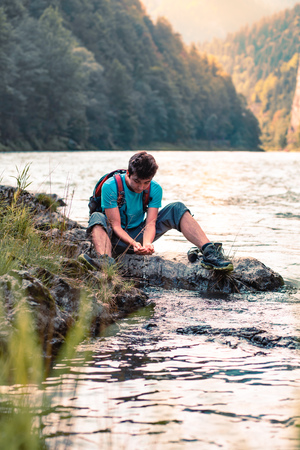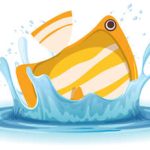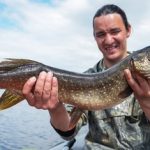1. Choosing the Right RV for Your Fishing Lifestyle
If youre dreaming of hitting the open road and casting a line wherever your heart desires, choosing the right RV is the first step to making that fishing adventure come true. Not all RVs are created equal—especially when it comes to fishing trips. You’ll want something that fits your style, gear, and travel needs. Let’s dive into the different types of RVs that are popular among fishing enthusiasts.
Types of RVs That Suit Fishing Enthusiasts
Depending on how you like to fish and where you plan to go, certain RV types may work better than others. Here’s a quick breakdown:
| RV Type | Best For | Fishing-Friendly Features |
|---|---|---|
| Travel Trailers | Weekend anglers or those who already have a tow vehicle | Easy to detach at campsites; lots of room for gear storage; more affordable options |
| Fifth-Wheel Trailers | Longer trips and more serious anglers | Spacious interiors; large underbelly storage for rods, coolers, and tackle boxes |
| Class C Motorhomes | Families or groups wanting a balance of comfort and drivability | Bunks for extra sleeping space; moderate towing ability for boats or trailers |
| Class A Motorhomes | Full-time RVers or luxury seekers who fish often | High-end amenities; large tanks for off-grid stays near remote lakes or rivers |
| Truck Campers | Solo travelers or couples exploring off-the-beaten-path fishing spots | Compact size; great off-road capability; perfect for backcountry fishing adventures |
Consider Your Fishing Style and Destination
The type of RV you choose should match the kind of fishing you enjoy. If youre into fly fishing in mountain streams, a smaller, more nimble setup like a truck camper might be ideal. If you prefer lake fishing with a bass boat, make sure your RV can tow the weight and has secure trailer connections.
Questions to Ask Yourself Before Buying:
- Do I need space to store kayaks, rods, and tackle?
- Will I be camping off-grid or staying at full-hookup campgrounds?
- How many people will be traveling with me?
- Do I need room to work remotely or relax after a long day of fishing?
Pro Tip:
If youre planning to fish in remote areas without hookups, look for an RV with solar panels, large holding tanks, and good insulation so you can stay longer without needing to resupply.
No matter what kind of angler you are, theres an RV out there that fits your lifestyle. Taking the time to pick the right one will make every future fishing trip smoother and more enjoyable.
2. Essential Fishing Gear to Pack in Your RV
When youre heading out on a fishing adventure with your RV, packing the right gear can make or break your trip. Depending on the type of fishing you plan to do—whether its freshwater lake fishing, fly fishing in rivers, or saltwater shore casting—there are key pieces of equipment youll want to bring along. Heres a breakdown of must-have gear to help you get started.
Fishing Rods and Reels
Different types of rods and reels work best for different fishing environments. Here’s a quick guide:
| Type of Fishing | Recommended Rod | Recommended Reel |
|---|---|---|
| Lake Fishing | Medium-action spinning rod (6-7 feet) | Spinning reel |
| Fly Fishing | 9-foot fly rod (5-6 weight) | Fly reel with adjustable drag |
| Saltwater Fishing | Heavy-action rod (7+ feet) | Baitcasting or spinning reel with corrosion resistance |
Tackle Box Essentials
Your tackle box should be well-stocked but organized. Here are some essentials you’ll want to include:
- A variety of hooks (sizes 4–1/0)
- Sinkers and split shot weights
- Bobbers or floats
- Lures: crankbaits, soft plastics, jigs, and spinnerbaits
- Pliers and line cutters
- Extra fishing line (monofilament and braided options)
waders and Footwear
If youre planning to fish from rivers or streams, waders are a game-changer. Choose between:
- Chest Waders: Ideal for deeper water; pair with wading boots for better grip.
- Hip Waders: Great for shallow streams and quick setups.
A good pair of waterproof boots is also essential when youre near slippery banks or muddy areas.
Tackle Storage and Organization
Your RV has limited space, so organization is key. Consider using stackable plastic bins or drawer systems to keep tackle separate by type or target species. Label everything for quick access.
Catching and Storing Fish
You’ll need reliable ways to store your catch until you’re ready to cook it up at camp. Here are a few must-haves:
- Casting Net: Useful if regulations allow netting baitfish.
- Cooler with Ice Packs: Keeps your fish fresh; choose a heavy-duty one with drainage.
- Bait Bucket: Especially handy if you’re using live bait like minnows or nightcrawlers.
Add-On Accessories Worth Packing
- Sunscreen and bug spray for comfort during long hours outside
- A folding chair for shoreline relaxation between casts
- A headlamp or flashlight for early morning or evening outings
- A small first aid kit just in case of minor accidents
Packing smart ensures that you’re always prepared no matter where the road—or the fish—take you.

3. Customizing Your RV for Maximum Fishing Convenience
Transforming your RV into a fishing-friendly basecamp means more than just packing your gear — it’s about smart customization to make everything easy and efficient. Whether youre heading to the lake for the weekend or planning a cross-country fishing trip, these modifications will help you stay organized and ready to cast at a moments notice.
Install Rod Racks
Fishing rods can be awkward to store, especially in tight RV spaces. Installing rod racks inside your RV keeps them secure during travel and prevents tangling or damage. You can mount rod holders on the ceiling, walls, or even underneath cabinets. Choose from horizontal or vertical styles depending on your layout and number of rods.
Add Storage Bins and Organizers
Keeping tackle, reels, bait, and other accessories in order is key to a stress-free fishing trip. Use stackable storage bins with clear labels so you can quickly find what you need. Drawer dividers and hanging organizers also help maximize space without cluttering your RV.
Recommended Storage Options
| Item | Best For | Where to Install |
|---|---|---|
| Stackable Plastic Bins | Tackle & Gear | Under beds or benches |
| Hanging Shoe Organizer | Lures & Tools | Back of doors |
| Drawer Dividers | Hooks & Small Parts | Kitchen drawers or cabinets |
Create a Fish Cleaning Station
If you plan to clean your catch on-site, having a designated fish cleaning station is a game changer. Many anglers set up a fold-out table outside the RV with a cutting board surface and access to water via a hose hookup or portable sink. Some even customize an outdoor kitchen setup with built-in cleaning tools.
Outdoor Fish Cleaning Station Essentials:
- Folding table with waterproof surface
- Portable sink or water hose connection
- Bait bucket and waste disposal bin
- Fillet knives with sheath storage
Add Hooks and Hangers for Wet Gear
No one wants soggy waders or rain jackets cluttering the living area. Mount hooks in your entryway or bathroom for hanging wet gear. You can also add an extendable clothesline outside the RV for drying items after a day on the water.
Pro Tip:
If you often fish in muddy areas, keep a rubber mat outside your door and install a small boot tray near the entrance to keep dirt out of your rig.
With just a few thoughtful upgrades, your RV can become the ultimate fishing hub — organized, clean, and ready for adventure wherever the road takes you.
4. Planning Your Route to Top Fishing Spots
One of the best parts of RV fishing adventures is the freedom to chase your favorite fish across the country. But to make the most of your trip, you’ll want to plan a route that hits those bucket-list fishing spots while also being RV-friendly. Here’s how to map out a smooth journey:
Research Prime Fishing Destinations
Start by deciding what kind of fish youre after—whether its bass in Florida, salmon in Oregon, or trout in Montana. Once you’ve got your wish list, look for well-known lakes, rivers, and coastal areas that are known for those species.
Top U.S. Fishing Spots to Consider:
| Location | Target Species | Best Time to Fish |
|---|---|---|
| Lake Okeechobee, Florida | Largemouth Bass | Winter to Early Spring |
| Columbia River, Oregon/Washington | Salmon & Steelhead | Summer to Fall |
| Bighorn River, Montana | Rainbow & Brown Trout | Spring through Fall |
| Lake Erie, Ohio | Walleye & Smallmouth Bass | Late Spring through Summer |
| Kenai River, Alaska | King Salmon | June through July |
Use RV-Friendly Navigation Tools
Not all roads are created equal when youre driving an RV. Use apps like RV LIFE Trip Wizard or Campendium to find routes that accommodate larger vehicles and help you locate nearby campgrounds with fishing access.
Know the Local Fishing Regulations
Fishing rules vary by state and even by specific body of water. Before casting your line, check each states Department of Natural Resources (DNR) website for info on fishing licenses, catch limits, and seasonal restrictions.
A Few Regulation Tips:
- Get licensed: Most states require a valid fishing license. Some offer short-term passes for travelers.
- Check bait rules: Some locations ban live bait or restrict certain types.
- Certain waters are catch-and-release only: Know before you go!
- Avoid fines: Always follow posted signs and local guidelines.
Create a Flexible Itinerary
You never know when you’ll stumble upon an unexpected honey hole or want to stay an extra day at a great campground. Build in buffer days and allow for detours—you’re in an RV, after all!
Pro Tip:
If youre traveling during peak season, it’s smart to book campsites in advance at popular fishing spots. However, keeping some nights open gives you flexibility if conditions change or you discover a hidden gem along the way.
A well-planned route keeps your adventure smooth and stress-free—and helps you focus on what matters most: catching fish and making memories.
5. Staying Comfortable and Safe on the Water and the Road
When youre heading out in your RV for a fishing adventure, comfort and safety are just as important as having the right rod and reel. Whether youre camping lakeside or setting up near a backcountry stream, being prepared can make all the difference. Here’s how to make sure your RV is ready to handle remote fishing spots, unpredictable weather, and long hours on the road.
RV Camping at Fishing Spots
Not all fishing locations offer paved pads and full hookups. Many of the best spots are in state parks, national forests, or even off-grid areas. Before you go, research campgrounds nearby your target fishing hole. Check for RV-friendly sites, access roads, and availability of amenities like dump stations and potable water. When boondocking (camping without hookups), plan ahead so you’re not caught without power or water.
Tips for Choosing a Fishing-Friendly Campsite:
| Feature | Why It Matters |
|---|---|
| Proximity to Water | Saves time getting to your fishing spot; great for early-morning outings. |
| RV Access Roads | Narrow or rough roads can damage your rig or be impassable. |
| Amenities | If youre staying longer, hookups or dump stations help extend your trip comfortably. |
| Local Regulations | Some areas have restrictions on overnight camping or generator use. |
Weather Preparedness
The weather can change quickly when youre out by the water. A sudden storm can turn a relaxing trip into a stressful one if you’re not ready. Make sure your RV is equipped with essential weather gear:
- A quality weather radio or app with real-time alerts
- An awning thats wind-rated or easy to retract quickly
- A backup heating source (like a portable propane heater) if you’re in colder climates
- Sufficient insulation and window covers for both hot and cold temps
You should also keep an eye on local forecasts daily and always have a plan to secure gear or evacuate if needed.
Your RVs Systems: Ready for the Backcountry?
If you’re planning to stay off-grid, your RV needs to be self-sufficient. That means checking that all key systems are working properly before you leave home:
Pre-Trip Checklist:
| System | What to Check |
|---|---|
| Batteries & Power Supply | Fully charged batteries, solar panels in good condition, working generator if available. |
| Freshwater System | No leaks; tank full; pump operational; filters clean. |
| Sewer & Waste Tanks | Tanks emptied before trip; hoses packed; chemicals added to black tank. |
| Tires & Brakes | Tire pressure correct; no wear/cracks; brakes tested. |
A little prep goes a long way toward ensuring your time on the water—and back at camp—is safe, stress-free, and enjoyable. After all, the less time you spend worrying about logistics, the more time you’ll have with your line in the water.


